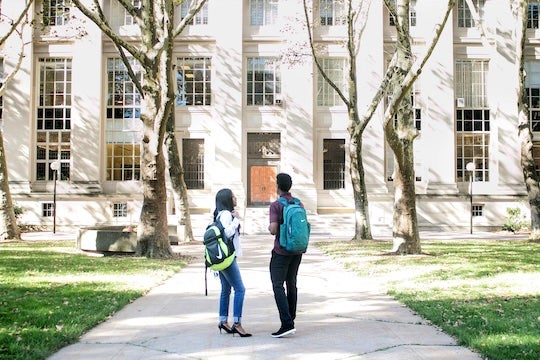A new assessment of the Texas public school system’s approach to career and college readiness over the past 10 years has found that despite some impressive gains for some students, it has failed to close the achievement gap for economically disadvantaged students.

That’s one takeaway from a new Kinder Institute for Urban Research report that examines how Texas evaluates schools around college, career or military readiness after graduation. The study also finds that under the state’s evolving policies, overall readiness levels remain flat, and the gap between economically disadvantaged students and their peers hasn’t budged in a decade.
“College and career readiness policy matters because it defines how schools allocate limited resources. It dictates whether students have access to advanced courses, college prep opportunities or career preparation programs,” said Gabriela Sanchez-Soto, a researcher with Rice University’s Kinder Institute and one of the lead authors of the study. “By defining what districts are accountable for, (the Texas Education Agency) is also defining what educational opportunities will be prioritized for our students.”
The report traces how Texas’ A-F accountability system evolved over the last decade with a focus on how the policies around college, career and military readiness, or CCMR, were implemented. Introduced in 2017 to bring more transparency and drive improvement, the accountability system framework has undergone substantial changes in response to new legislation, shifting workforce demands and the COVID-19 pandemic.
There are some clear wins despite the disruptions, researchers found. Emergent bilingual and special education students have made major progress, closing two-thirds and three-quarters of their respective readiness gaps, according to the report. But for low-income students, the story is the same as it was 10 years ago: Opportunity and access still depend too heavily on where a student lives or what resources their district can provide.

“Our researchers found measurable improvements in readiness for emergent bilingual and special education students,” said Erin Baumgartner, director of the Kinder Institute’s Houston Education Research Consortium, which partners with local school districts to address disparities. “That’s a clear signal that when policy is designed to close gaps, it can actually make a difference.”
The study offers several recommendations, including providing stronger guardrails that ensure a gradual implementation of changes and reduce disruptions for school districts, ensuring stakeholder feedback is incorporated and embedding equity into every stage of the system. Researchers also suggest continuing to recognize local readiness pathways — like dual-credit courses and work-based learning — that reflect real-world preparation aligned with local workforce needs and labor market demand.
With the Texas Education Agency and state legislators expected to finalize updates that could take effect in 2027-28, Kinder Institute researchers say now is the time to learn from the last decade and ensure every student has a fair shot at success — and that accountability measures truly capture the skills and opportunities that matter most for Texas’ evolving economy.
To read the full report, visit Urban Edge.
To schedule an interview with one of the study’s experts, contact Kat Cosley Trigg at kat.cosley.trigg @rice.edu.

